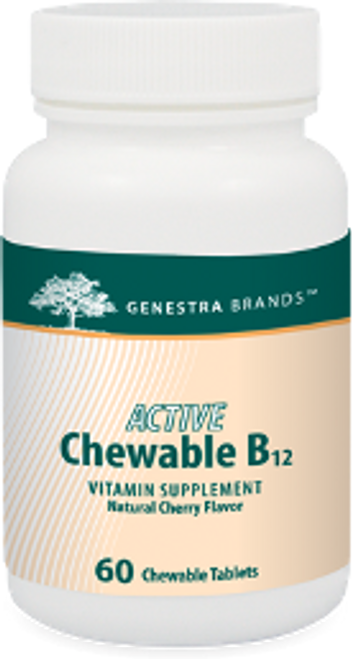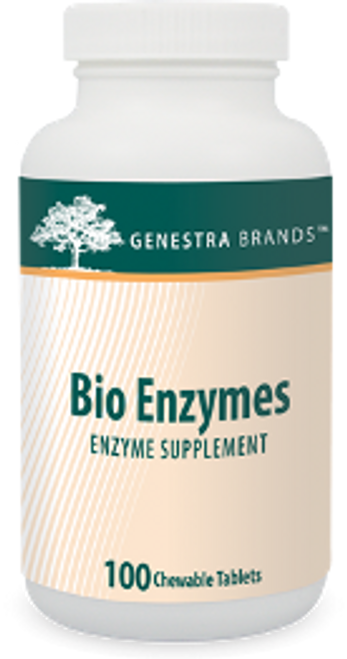Product Overview
Genestra D3 1000 Chewable- 120 Tablets
?ÿ
Great taste Natural blackcurrant flavor for excellent patient compliance Derived from natural sources Uses lanolin as a precursor, providing 1000 IU per tablet Factors into the maintenance of good health Helps in the development and maintenance of bones and teeth; helps in the absorption and use of calcium and phosphorus; and helps to prevent vitamin D deficiency Ideal for vegetarians Convenient tablet format increase patient compliance
D3 1000 Chewable uses lanolin as a precursor, providing 1000IU per tablet. USP and European pharmacopeia compliant, this product is also Food Codex grade. Rigorous independent testing includes all supplier medicinal test results verified through independent 3rd party laboratories, thus ensuring the highest quality product. Vitamin D is a factor in the maintenance of good health. It helps in the development and maintenance of bones and teeth; helps in the absorption and use of calcium and phosphorus; and helps to prevent vitamin D deficiency (1).
?ÿ
Additional product info: Calcium and the vitamin D hormonal system are both essential for the development and maintenance of skeletal health. Calcium plays a vital role in neuromuscular function, many enzyme-mediated processes, blood clotting and in providing rigidity to the skeleton by virtue of its phosphate salts. Over 99% of the bodys calcium is stored in the bone, where, apart from providing mechanical strength, it serves as a mineral reservoir that can be drawn upon to maintain normal plasma calcium. Vitamin D is required to maintain normal blood levels of calcium and phosphate, which are in turn needed for the normal mineralization of bone, muscle contraction, nerve conduction and the general cellular functioning of all body cells. Vitamin D, derived from both endogenous (skin) and exogenous (diet) sources, is converted into 25OHD in the liver and then into 1,25(OH)2D in the kidneys. The latter metabolite controls calcium absorption. However, plasma 25OHD closely reflects vitamin D nutritional status, and because it is the substrate for the renal enzyme that produces 1,25(OH)2D, it could have mainly an indirect and also a direct effect on calcium absorption. A vitamin D shortage would reduce the intestinal absorption of calcium, which could worsen if the diet is deficient of this element. Osteoporosis and its clinical consequence, fragility fractures, are now recognized as major public health problems. Bone mass declines and the risk of fractures increases as people age, especially postmenopausal women. An adequate intake of calcium and vitamin D, including supplementation, has been advocated as a universal primary intervention in the prevention and treatment of high-risk patients. Evidence shows that there is still a high proportion of people with inappropriately low calcium and vitamin D intake and serum levels. For selective groups of people, such as the elderly (frequently older than 70 years), those with low solar exposure and in generally poor or inadequate nutritional condition, guaranteeing a daily intake of at least 1 g of calcium and 700800 IU of vitamin D with supplements would have beneficial effects on bone health. In those individuals with a high risk of osteoporotic fracture, calcium and vitamin D supplements are necessary but frequently insufficient (2). The Womens Health Initiative (WHI) clinical trial randomly assigned 36,282 postmenopausal women to receive 1000 mg of elemental calcium as calcium carbonate with 400 IU of vitamin D3 daily or placebo for an average follow-up period of 7.0 years. Significantly higher hip bone density but a non-significant reduction (12 percent) in the rate of hip fracture among those assigned to calcium with vitamin D were observed (3). A recent review discusses vitamin D status and supplementation when treating patients with osteoporosis in relation to risks and prevention of falls and fractures. The authors conclude that poor vitamin D status and low calcium intake are important determinates for osteoporosis and fracture risk. Based on evidence from literature, adequate supplementation with at least 700 IU of vitamin D, preferably cholecalciferol, is required for improving physical function and prevention of falls and fractures. Additional calcium supplementation may be considered when dietary calcium intake is below 700 mg/day, with a supplementation dose that leads to a maximum total daily calcium intake of 1000 to 1200 mg (4).
Vitamin D receptor has been found on many immune cells, such as macrophages, dendritic cells, T and B cells, mainly after activation. It has been shown that vitamin D inhibits pro-inflammatory processes by suppressing the over-activity of CD4+ Th1, Th2 and Th17 cells and the production of their related cytokines such as interleukin-2, interferon-gamma and tumor necrosis factor-alpha. When immunomodulatory mechanisms of vitamin D are discussed, many studies point to their ability to enhance the anti-inflammatory loop, namely, their ability to modulate T regulatory cell function (5). An uncontrolled vitamin D supplementation trial among 50 apparently healthy subjects including supplementation of 140,000 IU at baseline and after 4 weeks (visit 1) was conducted. A final follow-up visit was performed 8 weeks after the baseline examination (visit 2). Vitamin D supplementation was associated with significantly increased % Regulatory T Cells (%Tregs) in apparently healthy individuals. This finding supports the hypothesis that vitamin D-induced stimulation of Tregs is a possible pathophysiologic mechanism by which vitamin D may prevent autoimmune diseases (6).
Vitamin D has complex effects on pulmonary cell biology and immunity with impact on inflammation, host defense, wound healing, repair, and other processes. While the knowledge on direct mechanistic links between Vitamin D and lung diseases is limited, a number of epidemiological and experimental are available that highlight the relevance of this connection (7). A placebo-controlled, double-blinded study involving 164 young Finnish men provides some evidence for a preventive effect of daily supplementation with 400 IU of vitamin D for 6 months against respiratory tract infection (8).
?ÿ
Other ingredients: Sorbitol, xylitol, natural blackcurrant flavor, silica, magnesium stearate
?ÿ








